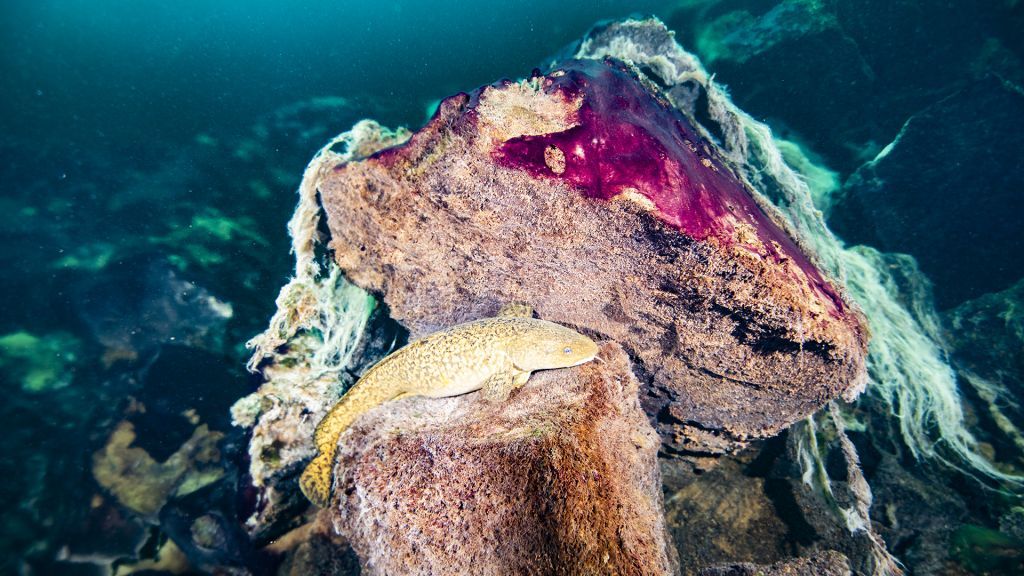Slowdown of Earth's spin caused an oxygen surge
By Mindy Weisberger about 6 hours ago
More daylight helped oxygen escape from microbial mats.

A burbot fish rests on rocks covered in purple and white microbial mats, inside the Middle Island Sinkhole in Lake Huron. (Image credit: Phil Hartmeyer, NOAA Thunder Bay National Marine Sanctuary)
Here's a new spin on how Earth became an oxygen-rich planet: As our planet's rotation slowed, microbes were bathed in longer stints of sunlight that revved up their release of oxygen into the atmosphere.
Every breath you take is possible because billions of years ago, dense mats of cyanobacteria — the first life on Earth — began churning out oxygen as a byproduct from photosynthesis. But scientists still didn't know for sure what triggered two transformative oxygenation events that turned Earth from a low-oxygen planet into an oxygen-rich world where complex organisms could evolve and diversify.
Now, researchers have identified an important factor that could have spurred the release of microbial-generated oxygen: slowdowns in Earth's rotation beginning about 2.4 billion years ago. Earth spun more quickly when it was a newborn planet, completing a turn in just a handful of hours, but it gradually decelerated over hundreds of millions of years. Once the length of a day reached a certain threshold — possibly during those key oxygenation periods — longer stretches of sunlight may have enabled more oxygen molecules to hop from areas of high concentration (inside the bacteria mats) to areas of lower concentration (the atmosphere), according to a new study.
Scientists recently found clues to this link in a sinkhole at the bottom of Lake Huron. Bordered by Michigan in the United States and by Ontario in Canada, Lake Huron is one of the biggest freshwater lakes in the world. The lake's Middle Island Sinkhole measures 300 feet (91 meters) in diameter and lies about 80 feet (24 m) below the surface. There, sulfur-rich water nourishes colorful microbes that thrive in a low-oxygen environment, much like Earth's earliest forms of bacteria did.
More:
https://www.space.com/early-earth-rotation-increase-oxygen
